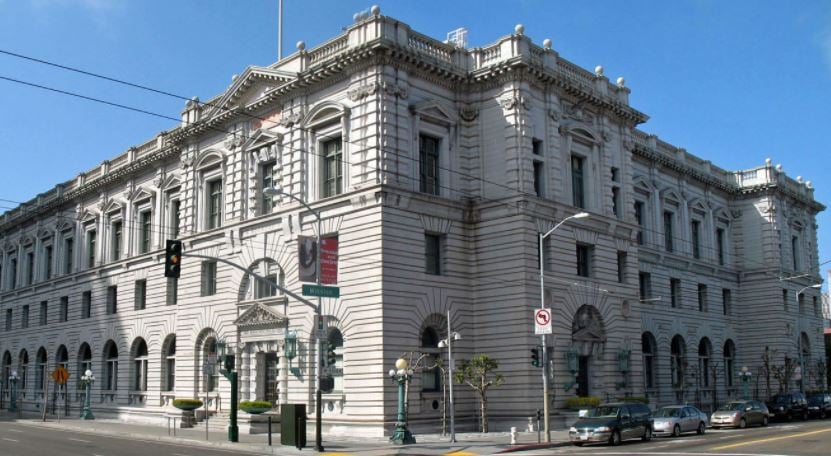(CN) — A Ninth Circuit panel Friday considered whether California’s Covid-19 restrictions banning indoor worship services at churches are constitutional, or, if a trio of federal judges should revise the restrictions to allow reduced indoor capacity like what grocery stores are complying with to keep their doors open.
“If Costco is open, your honor, churches need to be open,” attorney Charles LiMandri, representing South Bay United Pentecostal Church told U.S. Circuit Judge Kim McLane Wardlaw during the virtual hearing.
LiMandri responded to the Clinton appointee’s question regarding what entities churches should be compared to for purposes of state operational restrictions during the pandemic by suggesting places of worship are essential and should be treated as such.
“It’s our position that churches, regardless of what color-coded category the state chooses to place them in, are essential services under the First Amendment of the Constitution so they should be compared to other essential services, including large retail stores,” LiMandri said.
“It’s not appropriate to say churches need to be placed with sports arenas or music halls,” he added.
South Bay United Pentecostal Church appealed, for a second time, U.S. District Judge Cynthia Bashant’s denial of its request California and the county of San Diego be blocked from enforcing indoor worship restrictions triggered by an increase in Covid-19 infections after the state’s attempt to relax restrictions this past May.
The Obama appointee found in her order in December that California’s “neutral, seven-factor risk analysis” in determining what businesses should be open or closed during the pandemic was narrowly tailored.
Bashant gave “’substantial deference’ to the California public health officials’ attempt to protect the safety of its people.”
But LiMandri, when arguing before the Ninth Circuit Friday, suggested the Supreme Court decision in Roman Catholic Diocese of Brooklyn v. Cuomo, which overturned New York’s Covid-19 limits on indoor worship, was the controlling precedent requiring the Ninth Circuit take the same course of action in California.
The panel pushed back on that suggestion.
“Nothing in the Supreme Court’s decision reflected an attempt to evaluate data — which we have in front of us,” Circuit Judge Richard Clifton said, calling the Supreme Court ruling a “data-free zone.”
“I’m trying to give you an opportunity to focus on the case we have in front of us and identify what it is you think makes the district court’s decision to deny your application an abuse of discretion,” Clifton, a George W. Bush appointee, added.
LiMandri said his client’s church has not had any Covid-19 cases traced to exposure via its worship services. He also noted a study cited in their briefing papers showing indoor church services have been held safely across the country without contributing to the spread of the virus.
“They’ve proven it can be done safely,” LiMandri said.
Deputy Attorney General Todd Grabarsky told the panel if the state allowed secular activities to threaten the spread of Covid-19 in a similar or greater degree than the threat caused by worship services, that would constitute discrimination.
But Grabarsky said because the state had developed criteria to proportionally calculate transmission risk industry-by-industry, “congregate activities” including concerts, spectator events and worship services fell under the same operational restrictions.
Grabarsky disputed South Bay United Pentecostal Church could be included among the essential businesses and infrastructure it suggested it be lumped with — including the entertainment industry and transportation.
“Those categories are subjected to additional limits in addition to capacity limits that houses of worship are not subjected to,” Grabarsky said.
He noted actors, staff members, athletes and coaches on movie sets or participating in league sports are subjected to “almost daily testing,” in addition to outbreak reporting and contact tracing requirements.
“Those tailored restrictions mitigate the particular risk posed in those circumstances,” Grabarsky said.
“It is not true a film set would pose a greater risk of outbreak than would worship services,” he added.
But the panel questioned whether a total ban on indoor worship services was too broad.
“Wouldn’t the ordinance be more narrowly tailored if California approached it the same way as it approaches retail stores by having a certain percentage tied to the size of the church?” Wardlaw asked Grabarsky.
“No, your honor, it would not,” Grabarsky responded, noting the state’s experts “unequivocally opine in regions where the virus is so widespread and hospitals are so impacted, that any amount of indoor worship, regardless of size of building, regardless of masks or distancing and increased sanitization … simply poses too great of a risk of covid spread.”
Wardlaw retorted: “It seems to me that is a very extreme position.”
“Surely there must be some number of people where it is not posing such a huge drastic risk,” she added.
On rebuttal, LiMandri argued “there is no scientific data showing churches are more risky when they practice the protocols.”
He pointed out that the church performed temperature checks on congregants, removed pews to follow social distancing guidelines and required churchgoers to make reservations to attend services in advance.
“At the end of the day, the state does not consider what happens in churches as essential as what happens in these secular places,” LiMandri said.
“If it’s so bad that people cannot worship indoors in church, then they should probably have to call ahead and order their groceries curbside service,” he added.
U.S. District Judge Timothy Hillman, an Obama appointee sitting with distinction from the District of Massachusetts, rounded out the panel.
Attorney Jeffrey Michalowski, representing the county of San Diego and its public health officer Wilma Wooten, joined the state’s argument.
The matter was taken under submission.
Subscribe to Closing Arguments
Sign up for new weekly newsletter Closing Arguments to get the latest about ongoing trials, major litigation and hot cases and rulings in courthouses around the U.S. and the world.









